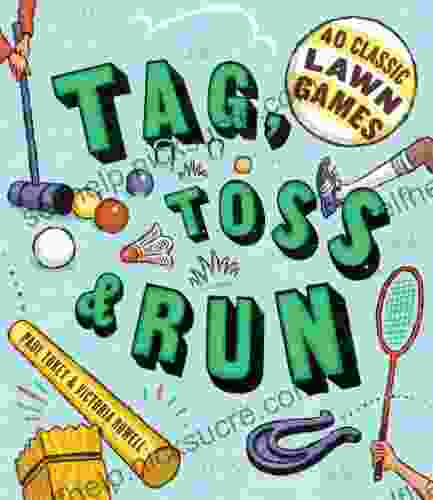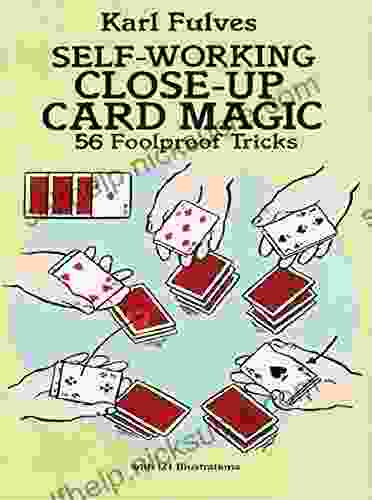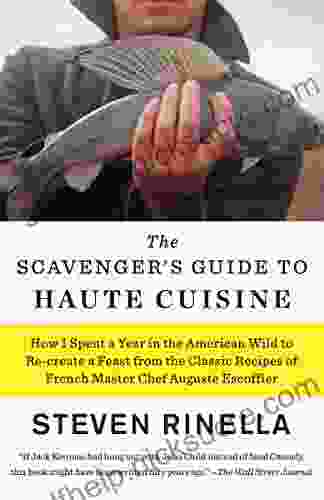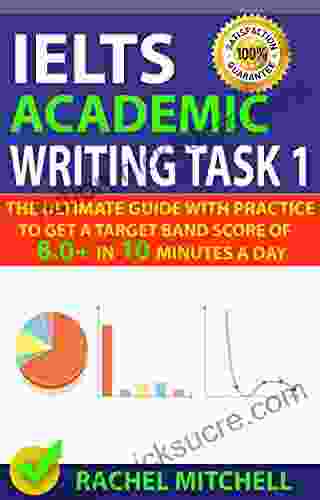Einstein Never Used Flash Cards: Uncover the Secrets of Effective Learning

The myth that Albert Einstein used flashcards to master complex scientific concepts has persisted for decades. However, there is no credible evidence to support this claim. In fact, the legendary physicist attributed his intellectual prowess to other, more effective learning strategies.
4.6 out of 5
| Language | : | English |
| File size | : | 1382 KB |
| Text-to-Speech | : | Enabled |
| Screen Reader | : | Supported |
| Enhanced typesetting | : | Enabled |
| Word Wise | : | Enabled |
| Print length | : | 322 pages |
So, if Einstein didn't use flashcards, what did he use? What are the scientifically proven methods that truly enhance learning, memory, and cognitive function?
Spaced Repetition
Spaced repetition is a technique that involves reviewing material at increasing intervals. This helps to strengthen memories and prevent them from fading over time.
For example, instead of studying a chapter of a textbook all at once, you could break it up into smaller sections and review each section at intervals of 1 day, 3 days, 1 week, and 1 month.
Active Recall
Active recall is the process of trying to retrieve information from memory without looking at your notes. This forces your brain to work harder and helps to create stronger memories.
There are several ways to practice active recall, such as:
- Quizzing yourself
- Writing down everything you remember about a topic
- Explaining a concept to someone else
Elaborative Encoding
Elaborative encoding is the process of connecting new information to existing knowledge and experiences. This helps to make the new information more meaningful and easier to remember.
For example, when you're learning a new word, try to come up with a sentence that uses the word. Or, when you're learning about a historical event, try to connect it to something you already know about.
Interleaving
Interleaving is the practice of mixing up different types of problems or questions. This helps to prevent your brain from getting stuck in a rut and forces you to think more flexibly.
For example, instead of studying all of the math problems in a chapter at once, you could mix them up with problems from different sections of the chapter.
Retrieval Practice
Retrieval practice is the process of actively trying to retrieve information from memory. This helps to strengthen memories and make them more accessible.
There are several ways to practice retrieval practice, such as:
- Taking practice tests
- Creating flashcards and quizzing yourself
- Writing down everything you remember about a topic
The myth that Einstein used flashcards is a reminder that not all learning strategies are created equal. Flashcards may be a helpful tool for memorizing simple facts, but they are not the best way to develop deep understanding and long-term retention.
If you want to learn effectively, focus on using the science-backed methods described above. Spaced repetition, active recall, elaborative encoding, interleaving, and retrieval practice are all proven to enhance learning, memory, and cognitive function.
4.6 out of 5
| Language | : | English |
| File size | : | 1382 KB |
| Text-to-Speech | : | Enabled |
| Screen Reader | : | Supported |
| Enhanced typesetting | : | Enabled |
| Word Wise | : | Enabled |
| Print length | : | 322 pages |
Do you want to contribute by writing guest posts on this blog?
Please contact us and send us a resume of previous articles that you have written.
 Fiction
Fiction Non Fiction
Non Fiction Romance
Romance Mystery
Mystery Thriller
Thriller SciFi
SciFi Fantasy
Fantasy Horror
Horror Biography
Biography Selfhelp
Selfhelp Business
Business History
History Classics
Classics Poetry
Poetry Childrens
Childrens Young Adult
Young Adult Educational
Educational Cooking
Cooking Travel
Travel Lifestyle
Lifestyle Spirituality
Spirituality Health
Health Fitness
Fitness Technology
Technology Science
Science Arts
Arts Crafts
Crafts DIY
DIY Gardening
Gardening Petcare
Petcare David Acheson
David Acheson Lyn Millner
Lyn Millner The Car Crash Detective
The Car Crash Detective Catherine Rodgers
Catherine Rodgers Ron Dalby
Ron Dalby Rena Ejiogu
Rena Ejiogu Arthur Benjamin
Arthur Benjamin Nic Stone
Nic Stone Heather Heying
Heather Heying Leslie T Chang
Leslie T Chang Paul Bodine
Paul Bodine Bernd Brunner
Bernd Brunner Gareth Loy
Gareth Loy Bill Thorness
Bill Thorness Dr Jerisa Berry
Dr Jerisa Berry Karl Fulves
Karl Fulves Laura Riley
Laura Riley Luca Caioli
Luca Caioli Nick Fragel
Nick Fragel Catherine Belknap
Catherine Belknap Rajeev Lal
Rajeev Lal Samir Okasha
Samir Okasha Ethan Sawyer
Ethan Sawyer James Ori
James Ori Ed Jaworowski
Ed Jaworowski Marie Rutkoski
Marie Rutkoski Katie Hoff
Katie Hoff Norman Ollestad
Norman Ollestad Richard Strozzi Heckler
Richard Strozzi Heckler Sam Pathy
Sam Pathy Laurie Katz
Laurie Katz Miriam Erick
Miriam Erick James Nestor
James Nestor Aspen Matis
Aspen Matis Judith Z Kallenbach
Judith Z Kallenbach Linda Wong
Linda Wong Graham Frankel
Graham Frankel Mary Jayne Baker
Mary Jayne Baker Lamis Chebbi
Lamis Chebbi Jerome D Smalls
Jerome D Smalls Tom Humphries
Tom Humphries Nina W Brown
Nina W Brown Tim Muehlhoff
Tim Muehlhoff David Dalglish
David Dalglish Emenwa Global
Emenwa Global Don Orwell
Don Orwell Larry Miller
Larry Miller Susan F Paterno
Susan F Paterno B F Skinner
B F Skinner G R S Mead
G R S Mead Fred Mitchell
Fred Mitchell Sharon Slater
Sharon Slater Moon Travel Guides
Moon Travel Guides Edward Lee
Edward Lee Dave Ramsey
Dave Ramsey George J Hademenos
George J Hademenos John Quick
John Quick Kindle Edition
Kindle Edition Kathy Jackson
Kathy Jackson Gabriel Gambetta
Gabriel Gambetta Brian A Hall
Brian A Hall Rufus Stephens
Rufus Stephens Simon Pridmore
Simon Pridmore Sarah Boslaugh
Sarah Boslaugh Linda Dobson
Linda Dobson Chris Santella
Chris Santella Janet Gurtler
Janet Gurtler Maureen Connolly
Maureen Connolly Avinash K Dixit
Avinash K Dixit Sadie Keller
Sadie Keller Bernie Chowdhury
Bernie Chowdhury Jim Collins
Jim Collins Qukids
Qukids Seth Kantner
Seth Kantner Marc Kery
Marc Kery Gillian Bradshaw
Gillian Bradshaw Dory Willer
Dory Willer John D Mccann
John D Mccann William Schoolcraft
William Schoolcraft Athena P Kourtis
Athena P Kourtis Mark Gardener
Mark Gardener Kimberly Willis
Kimberly Willis J A Baker
J A Baker Alan Lightman
Alan Lightman Aubrey Hargis
Aubrey Hargis Andy Mcilree
Andy Mcilree Kilian Jornet
Kilian Jornet Lizzie Lane
Lizzie Lane Jeannie Burlowski
Jeannie Burlowski Keith Mcnulty
Keith Mcnulty Beatrice Bruteau
Beatrice Bruteau Dk
Dk Sonia Mainstone Cotton
Sonia Mainstone Cotton Barry Cunliffe
Barry Cunliffe T Berry Brazelton
T Berry Brazelton Tony Clunn
Tony Clunn Wilfrid Jonson
Wilfrid Jonson Mandy Khoshnevisan
Mandy Khoshnevisan Madelynne Diness Sheehan
Madelynne Diness Sheehan Lindsey Philpott
Lindsey Philpott Nancy Owens Barnes
Nancy Owens Barnes Julia Albu
Julia Albu Mami Wata
Mami Wata Jerry Scott
Jerry Scott Ori Hofmekler
Ori Hofmekler Liz Carmack
Liz Carmack Brandon Sneed
Brandon Sneed Maya Angelou
Maya Angelou Joe Friel
Joe Friel Christine Ann Lawson
Christine Ann Lawson Geoffrey Budworth
Geoffrey Budworth Mohamed F El Hewie
Mohamed F El Hewie Marc D Lewis
Marc D Lewis E W Bullinger
E W Bullinger Mike Eruzione
Mike Eruzione Dustin Hansen
Dustin Hansen Denny Emerson
Denny Emerson Vivian Sandau
Vivian Sandau J C Pater
J C Pater Miriam Manela
Miriam Manela Beverly Bell
Beverly Bell Robert Simons
Robert Simons Kathy Pike
Kathy Pike Joanne Simon Walters
Joanne Simon Walters Carly Gelsinger
Carly Gelsinger Babu The Panda
Babu The Panda Bubba Watson
Bubba Watson Hourly History
Hourly History Kathleen M Eisenhardt
Kathleen M Eisenhardt Pat Mora
Pat Mora Lisa Fain
Lisa Fain Bruno Barnhart
Bruno Barnhart Sarah B Bush
Sarah B Bush Shelley Johnson
Shelley Johnson E Paul Zehr
E Paul Zehr Deborah Hughes Hallett
Deborah Hughes Hallett Sara Zarr
Sara Zarr Jermaine Marshall
Jermaine Marshall Richard Boergers
Richard Boergers Janis B Meredith
Janis B Meredith Dana Wechsler Linden
Dana Wechsler Linden Brent Runyon
Brent Runyon Print Replica Kindle Edition
Print Replica Kindle Edition Nsca National Strength Conditioning Association
Nsca National Strength Conditioning Association Heather E Schwartz
Heather E Schwartz Lara Lillibridge
Lara Lillibridge Deborah J Rumsey
Deborah J Rumsey Robert E Howard
Robert E Howard Maria Montessori
Maria Montessori Bob Smale
Bob Smale Tracey L Moore
Tracey L Moore Kira Breed Wrisley
Kira Breed Wrisley Rachel Mitchell
Rachel Mitchell Duncan J Watts
Duncan J Watts Paul Parsons
Paul Parsons Aubre Andrus
Aubre Andrus Alan Vermilye
Alan Vermilye Stephen Morris
Stephen Morris Deborah T Goldberg
Deborah T Goldberg Roy Benaroch Md
Roy Benaroch Md Jessica Nordell
Jessica Nordell Fran Zimniuch
Fran Zimniuch Levison Wood
Levison Wood Mark Coeckelbergh
Mark Coeckelbergh John Hiker
John Hiker Eunice Pennington
Eunice Pennington Harry Bauld
Harry Bauld Jonothan Page
Jonothan Page Gary Webster
Gary Webster Esther M Toddler
Esther M Toddler Augustus M Walton
Augustus M Walton Samantha Bongeka Nqoko
Samantha Bongeka Nqoko John S Ahlquist
John S Ahlquist Blake Boles
Blake Boles Kevin Bales
Kevin Bales Kevin Kelly
Kevin Kelly Ellyn Sanna
Ellyn Sanna Atlas Kane
Atlas Kane Richard Ferber
Richard Ferber Quick Reads
Quick Reads Steve Colgate
Steve Colgate Foster Provost
Foster Provost Ayn Rand
Ayn Rand Lori Foster
Lori Foster Darren Palmer
Darren Palmer Jennifer Love
Jennifer Love Kenneth P Miller
Kenneth P Miller Larry Gonick
Larry Gonick Casey Schreiner
Casey Schreiner Leonard Susskind
Leonard Susskind Manly P Hall
Manly P Hall Patrick Hamill
Patrick Hamill Danny Staple
Danny Staple Sharon Baranoski
Sharon Baranoski William Woys Weaver
William Woys Weaver Austa Somvichian Clausen
Austa Somvichian Clausen M Prefontaine
M Prefontaine Jim Holt
Jim Holt Gaby Melian
Gaby Melian Reinhard Bonnke
Reinhard Bonnke Collins Dictionaries
Collins Dictionaries Martins Zaumanis
Martins Zaumanis Tracy Deonn
Tracy Deonn S Ali Myers
S Ali Myers Yang Jwing Ming
Yang Jwing Ming Audrey Sutherland
Audrey Sutherland Linda Fairley
Linda Fairley Brent Dykes
Brent Dykes Rudy Sanchez
Rudy Sanchez John Connor
John Connor Matt Wallaert
Matt Wallaert Ben Riggs
Ben Riggs Kristin Fontichiaro
Kristin Fontichiaro Mark Parman
Mark Parman Steven M Bragg
Steven M Bragg Cora Seton
Cora Seton Ken Denmead
Ken Denmead Lilith Dorsey
Lilith Dorsey Sam Quek
Sam Quek Johnette Howard
Johnette Howard Aylette Jenness
Aylette Jenness Laura A Roser
Laura A Roser Michael Grimm
Michael Grimm M D William W Forgey
M D William W Forgey Ken Fry
Ken Fry Babatunde Peter
Babatunde Peter John Gierach
John Gierach John Littleford
John Littleford Dean Karnazes
Dean Karnazes Peter Gieler
Peter Gieler Martin Rees
Martin Rees Bradley Stone
Bradley Stone David Landis
David Landis Martin Liebscher
Martin Liebscher Michael Paul
Michael Paul Shepherd Mead
Shepherd Mead Smadar Lavie
Smadar Lavie George Orwell
George Orwell Autumn Carpenter
Autumn Carpenter Stephanie Donaldson Pressman
Stephanie Donaldson Pressman Prayer M Madueke
Prayer M Madueke Eric S Raymond
Eric S Raymond Mike Mastracci
Mike Mastracci Lew Freedman
Lew Freedman Audrey Grey
Audrey Grey Yogi Ramacharaka
Yogi Ramacharaka David J Miklowitz
David J Miklowitz Sandy Hall
Sandy Hall Jeff Vandermeer
Jeff Vandermeer Steve Oakes
Steve Oakes Lisa Gache
Lisa Gache Conrad Goeringer
Conrad Goeringer John Skinner
John Skinner John Austin
John Austin Jessica S Olson
Jessica S Olson Mercedes Lackey
Mercedes Lackey John Misha Petkevich
John Misha Petkevich Tiffany Wasson
Tiffany Wasson Paul Pilkington
Paul Pilkington Tony Nester
Tony Nester Jim Fay
Jim Fay Rehan Haider
Rehan Haider Joe Hutto
Joe Hutto Gary D Wale
Gary D Wale Florin Grancea
Florin Grancea Picabo Street
Picabo Street Dk Eyewitness
Dk Eyewitness Nfhs
Nfhs Leonard Mlodinow
Leonard Mlodinow Family Traditions Publishing
Family Traditions Publishing Greg Lavern
Greg Lavern Claire Nance
Claire Nance Karen Skerrett
Karen Skerrett Brigid Kemmerer
Brigid Kemmerer Greg B Smith
Greg B Smith Ryan Sleeper
Ryan Sleeper Dan Blanchard
Dan Blanchard Jeff Szuhay
Jeff Szuhay Elizabeth M Ward
Elizabeth M Ward David Shoalts
David Shoalts Robert W Sullivan Iv
Robert W Sullivan Iv William M Kelso
William M Kelso Mia Baxter
Mia Baxter Shelly Rainforth Collins
Shelly Rainforth Collins Efrain Galeano
Efrain Galeano Pete Whittaker
Pete Whittaker John Swinton
John Swinton Mike Kim
Mike Kim Terasa Cooley
Terasa Cooley Patty Hahne
Patty Hahne Cat Coluccio
Cat Coluccio Tom Rea
Tom Rea Matt Forbeck
Matt Forbeck Gemma Mccrae
Gemma Mccrae Ernestine Gilbreth Carey
Ernestine Gilbreth Carey Madeleine Roux
Madeleine Roux Casey Barber
Casey Barber Bob Weeks
Bob Weeks Deanna Pecaski Mclennan
Deanna Pecaski Mclennan Philip Clayton
Philip Clayton Chris Burkard
Chris Burkard Vb Leghorn
Vb Leghorn Kaleb Dahlgren
Kaleb Dahlgren Darryl Cunningham
Darryl Cunningham Kay Harris Kriegsman
Kay Harris Kriegsman James Garbarino
James Garbarino Richard H Immerman
Richard H Immerman Paul Tukey
Paul Tukey T J Emerson
T J Emerson Siddhartha Mukherjee
Siddhartha Mukherjee Lawrence A Kane
Lawrence A Kane Karen Berger
Karen Berger Uta C Merzbach
Uta C Merzbach Mark Baker
Mark Baker R Scott Thornton
R Scott Thornton Spike Walker
Spike Walker Pedro G Ferreira
Pedro G Ferreira Temple Bailey
Temple Bailey Leigh Pearson
Leigh Pearson Brian Christian
Brian Christian Hilary Scarlett
Hilary Scarlett Chloe Lukasiak
Chloe Lukasiak Gerald Paul Clifford
Gerald Paul Clifford Vasily Mahanenko
Vasily Mahanenko Deborah Falaye
Deborah Falaye Richard Miles
Richard Miles Joe Ryder
Joe Ryder Daria Blackwell
Daria Blackwell Conrad Anker
Conrad Anker Brooke Dojny
Brooke Dojny James Deetz
James Deetz Paul Oliver
Paul Oliver Zhi Gang Sha
Zhi Gang Sha James Ladyman
James Ladyman Carolyn Wyman
Carolyn Wyman Karen Whitley Bell
Karen Whitley Bell Suzanne Jurmain
Suzanne Jurmain Robert Chuckrow
Robert Chuckrow Stan Fischler
Stan Fischler Inga Aksamit
Inga Aksamit Peter Levin
Peter Levin Robert Warden
Robert Warden Scott Turansky
Scott Turansky Lise Eliot
Lise Eliot Justine Kerfoot
Justine Kerfoot Penny Simkin
Penny Simkin Daffodil Campbell
Daffodil Campbell Johny Pitts
Johny Pitts Avery Faigenbaum
Avery Faigenbaum Vicki Hoefle
Vicki Hoefle Patricia L Thompson
Patricia L Thompson Scott Mactavish
Scott Mactavish Tarik Unal
Tarik Unal N West Moss
N West Moss Gabrielle Bossis
Gabrielle Bossis Ethan Gallogly
Ethan Gallogly Greta Eskridge
Greta Eskridge Timo Holmquist
Timo Holmquist Ken Phillips
Ken Phillips Cece Winans
Cece Winans Greg Gatz
Greg Gatz Steve Bisheff
Steve Bisheff Asiphile Qulu
Asiphile Qulu C M Gray
C M Gray Clive Finlayson
Clive Finlayson Izabelle Winter
Izabelle Winter Jacqui Letran
Jacqui Letran Robert T Clemen
Robert T Clemen Renzo Gracie
Renzo Gracie Robert M Steward
Robert M Steward Spanked Teen
Spanked Teen Beverly Conyers
Beverly Conyers Jesus Salcedo
Jesus Salcedo Debora Rasio
Debora Rasio Susan M Sheridan
Susan M Sheridan Conor Sullivan
Conor Sullivan Brett Ortler
Brett Ortler Proprietary Edition Kindle Edition
Proprietary Edition Kindle Edition Dusty Phillips
Dusty Phillips Barbara Oakley Phd
Barbara Oakley Phd Jayme Adelson Goldstein
Jayme Adelson Goldstein Kathy Hirsh Pasek
Kathy Hirsh Pasek Linda West
Linda West Tara Sim
Tara Sim Austin Ruse
Austin Ruse Staff Of The Harvard Crimson
Staff Of The Harvard Crimson Simon Askey
Simon Askey Larry Olmsted
Larry Olmsted Randi Kreger
Randi Kreger Rick Burgess
Rick Burgess Steven Rinella
Steven Rinella Gail M Nelson
Gail M Nelson Fred Provenza
Fred Provenza Harlan Coben
Harlan Coben R F Egerton
R F Egerton Roger Lajoie
Roger Lajoie Fred Alan Wolf
Fred Alan Wolf Eitan Bar
Eitan Bar Terry Marsh
Terry Marsh James Feess
James Feess Nita Sweeney
Nita Sweeney John Sharp
John Sharp Steven Brill
Steven Brill Loren W Christensen
Loren W Christensen Joe Kelsey
Joe Kelsey Don Casey
Don Casey Larry Dane Brimner
Larry Dane Brimner Lois Lowry
Lois Lowry Ben Sasse
Ben Sasse Barbara Blitzer
Barbara Blitzer Christopher Burris
Christopher Burris Charles D Garvin
Charles D Garvin Stewart M Green
Stewart M Green Eric Jones
Eric Jones Gabriela Rosa
Gabriela Rosa Blake Dresden
Blake Dresden Lucy Hopping
Lucy Hopping Emily Whaley
Emily Whaley Todd Mikkelsen
Todd Mikkelsen Hugh Acheson
Hugh Acheson Adam Parkinson
Adam Parkinson Jonathan Cane
Jonathan Cane Fennel Hudson
Fennel Hudson Huw Price
Huw Price Laurie Kennedy Malone
Laurie Kennedy Malone Peggy Kaye
Peggy Kaye Don J Sharpsteen
Don J Sharpsteen Warren W Wiersbe
Warren W Wiersbe Jessica Seinfeld
Jessica Seinfeld Drew Harris
Drew Harris E Randolph Richards
E Randolph Richards Tori Bortman
Tori Bortman Thane K Pratt
Thane K Pratt Lore M Dickey
Lore M Dickey Dan Morse
Dan Morse Larry Hart
Larry Hart Dougald Macdonald
Dougald Macdonald Morgan Murphy
Morgan Murphy David Code
David Code Colleen Hoover
Colleen Hoover Nathan Clark
Nathan Clark John Updike
John Updike Patrisia Gonzales
Patrisia Gonzales Patricia Stacey
Patricia Stacey Robert M Bramson
Robert M Bramson Kay Wills Wyma
Kay Wills Wyma Katie Cotugno
Katie Cotugno Martha Raile Alligood
Martha Raile Alligood Sofia Price
Sofia Price Asia Citro
Asia Citro Colin Towell
Colin Towell Deborah Miller
Deborah Miller Hillary Davis
Hillary Davis Carl Safina
Carl Safina Darja Wagner Ph D
Darja Wagner Ph D Belinda Smith Sullivan
Belinda Smith Sullivan Charles L Thompson
Charles L Thompson Cornelia Pelzer Elwood
Cornelia Pelzer Elwood Dima Zales
Dima Zales Cynthia Hand
Cynthia Hand Joe Baird
Joe Baird Augustine Wetta
Augustine Wetta Antoni Porowski
Antoni Porowski Kjell Erik Rudestam
Kjell Erik Rudestam Tara Dixon Engel
Tara Dixon Engel Nancy Friday
Nancy Friday Sanya Richards Ross
Sanya Richards Ross Ervin Laszlo
Ervin Laszlo Ayesha Ratnayake
Ayesha Ratnayake Tomasz Witkowski
Tomasz Witkowski Jeffrey Freed
Jeffrey Freed Timothy J Jorgensen
Timothy J Jorgensen Audre Lorde
Audre Lorde Peter Bronski
Peter Bronski Ashley Rhodes Courter
Ashley Rhodes Courter Carol Potter
Carol Potter Jens Voigt
Jens Voigt Jessica Nabongo
Jessica Nabongo Mike Doyle
Mike Doyle Patrick Holford
Patrick Holford Audrey Coulthurst
Audrey Coulthurst Deanna Roy
Deanna Roy Carol Ann Rinzler
Carol Ann Rinzler John Gray
John Gray Vance Packard
Vance Packard
Light bulbAdvertise smarter! Our strategic ad space ensures maximum exposure. Reserve your spot today!

 Allen ParkerThe Complete Guide To Hunting, Butchering, And Cooking Wild Game: Unlock The...
Allen ParkerThe Complete Guide To Hunting, Butchering, And Cooking Wild Game: Unlock The...
 Chadwick PowellTag Toss Run 40 Classic Lawn Games: A Comprehensive Guide to Endless Outdoor...
Chadwick PowellTag Toss Run 40 Classic Lawn Games: A Comprehensive Guide to Endless Outdoor... Ivan CoxFollow ·5.8k
Ivan CoxFollow ·5.8k Danny SimmonsFollow ·13.6k
Danny SimmonsFollow ·13.6k Gavin MitchellFollow ·19.5k
Gavin MitchellFollow ·19.5k Everett BellFollow ·18.6k
Everett BellFollow ·18.6k DeShawn PowellFollow ·17.9k
DeShawn PowellFollow ·17.9k Logan CoxFollow ·5.5k
Logan CoxFollow ·5.5k Darren BlairFollow ·2.7k
Darren BlairFollow ·2.7k Mario BenedettiFollow ·12.7k
Mario BenedettiFollow ·12.7k

 Jett Powell
Jett PowellHow to Choose a Church That's Right for You
Choosing a church...

 Bryan Gray
Bryan GrayThe Unbelievable World of Self-Working Close Up Card...
Imagine having...

 Junot Díaz
Junot DíazUnveiling the Enchanting Old City Laneways and Diavatika:...
Crete, the largest of...

 Jamison Cox
Jamison CoxA Year in the American Wild: Recreating a Feast from...
For one year, I lived off...

 Holden Bell
Holden BellArchaeology of Early American Life: An Exploration of...
The archaeology...

 Rodney Parker
Rodney ParkerRegain Your Fertility By Reversing Insulin Resistance,...
If you're struggling to conceive, you may be...
4.6 out of 5
| Language | : | English |
| File size | : | 1382 KB |
| Text-to-Speech | : | Enabled |
| Screen Reader | : | Supported |
| Enhanced typesetting | : | Enabled |
| Word Wise | : | Enabled |
| Print length | : | 322 pages |








